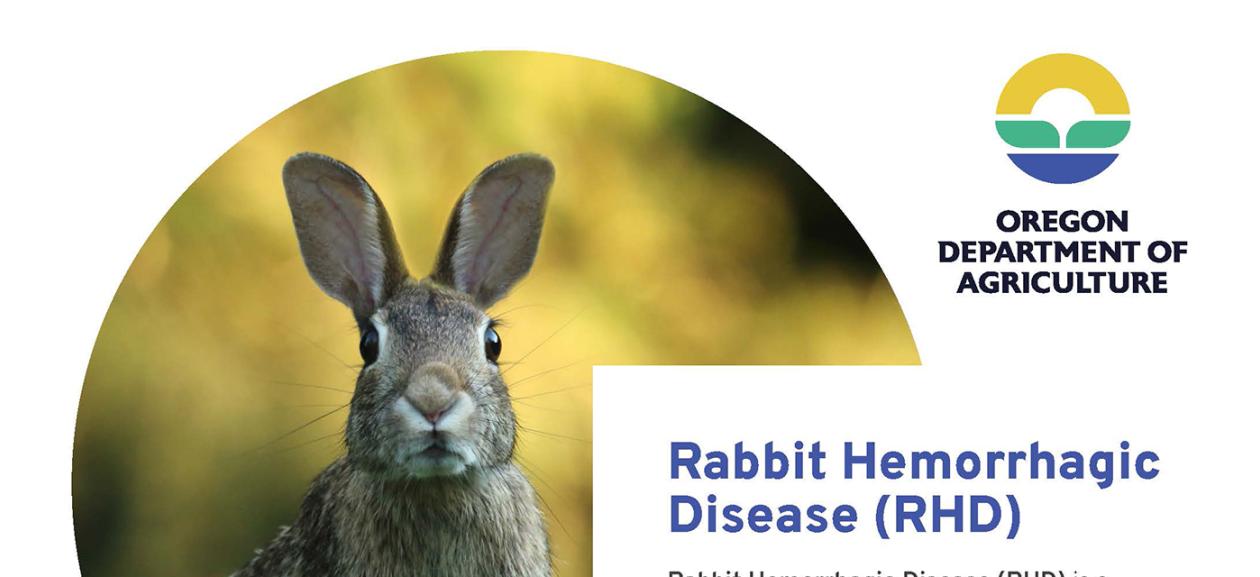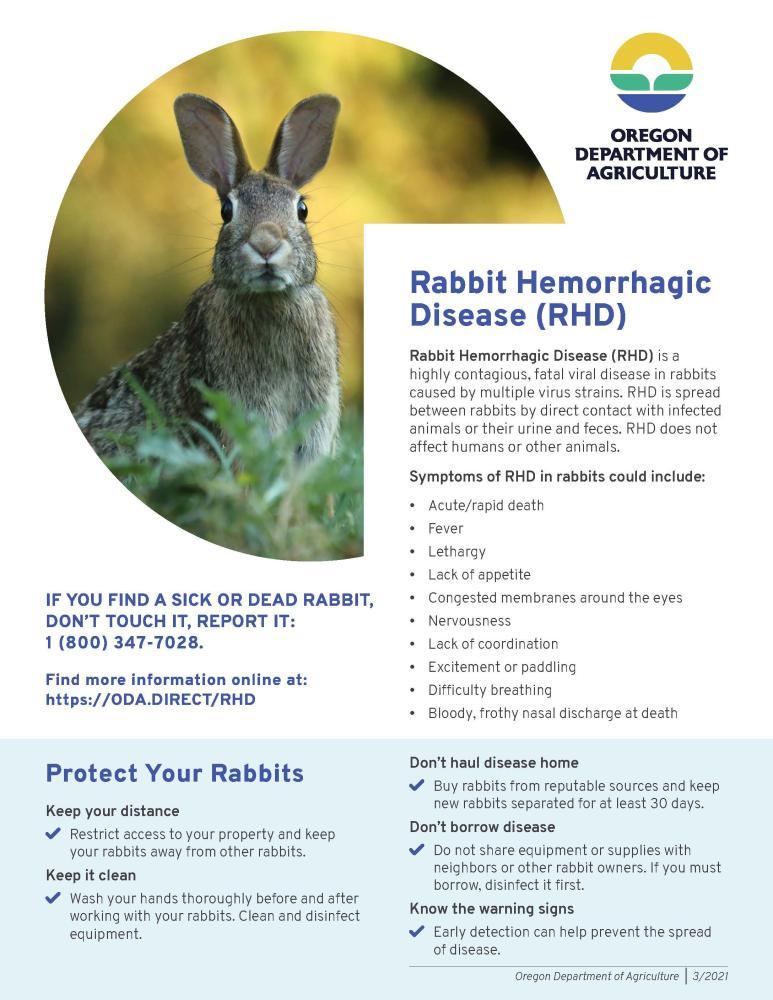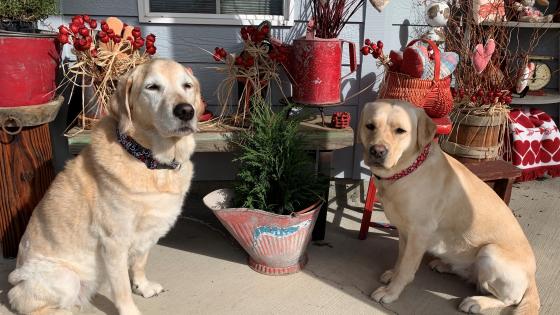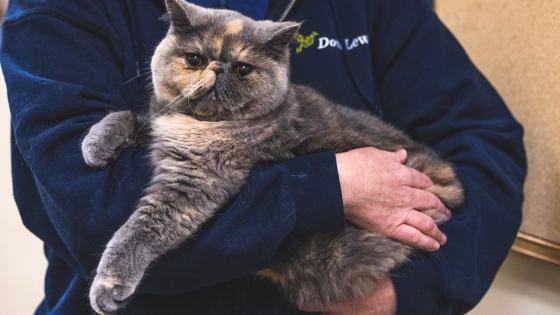
Rabbit Hemorrhagic Disease (RHD)
Rabbit Hemorrhagic Disease (RHD) is a highly contagious, fatal viral disease in rabbits caused by multiple virus strains. RHD is spread between rabbits by direct contact with infected animals or their urine and feces. RHD does not affect humans or other animals.

Symptoms of RHD in rabbits could include:
- Acute/rapid death
- Fever
- Lethargy
- Lack of appetite
- Congested membranes around the eyes
- Nervousness
- Lack of coordination
- Excitement or paddling
- Difficulty breathing
- Bloody, frothy nasal discharge at death
Keeping Domestic Rabbits Safe
- Talk to your veterinarian for advice
- Minimize exposure to wild rabbits and hares by keeping your rabbits in hutches or cages that are elevated off the ground.
- Keep pet rabbits inside to avoid exposure to environments potentially contaminated by wild/feral rabbits or by people, vehicles, or implements that can spread the disease.
- Do not allow your rabbits to graze or roam in a yard if wild rabbits are present in your area.
- Restrict visitors to your rabbitry and limit the handling of the animals by visitors.
- Avoid transporting or importing domestic rabbits.
- After visiting a show, fair, or meeting where rabbits were commingled, shower and change clothes before handling your rabbits.
- Quarantine new rabbits away from existing ones for 30 days.
- Know the health status of the rabbitry from which you purchase rabbits.
- Keep dogs, coyotes, insects, birds, rodents, and other animals away from your rabbits, as they may carry disease.
- Be aware of the state’s rabbit disease status or country of origin of any equipment or supplies you are purchasing.
- Wash and disinfect hands, clothing, gloves, footwear, cages, and equipment between rabbits from different sources. (RHDV is inactivated by 10% bleach to water solution.)
- Immediately contact ODA (800-347-7028) if you suspect RHD or have sick or freshly dead rabbits.
Read the full press release from the Oregon Department of Agriculture.




